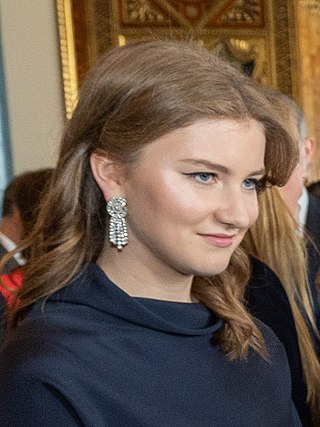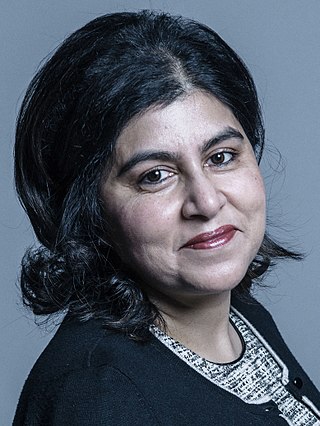
A kipper is a whole herring, a small, oily fish, that has been split in a butterfly fashion from tail to head along the dorsal ridge, gutted, salted or pickled, and cold-smoked over smouldering wood chips.
Pulp magazines were inexpensive fiction magazines that were published from 1896 until around 1955. The term "pulp" derives from the wood pulp paper on which the magazines were printed, due to their cheap nature. In contrast, magazines printed on higher-quality paper were called "glossies" or "slicks". The typical pulp magazine had 128 pages; it was 7 inches (18 cm) wide by 10 inches (25 cm) high, and 0.5 inches (1.3 cm) thick, with ragged, untrimmed edges. Pulps were the successors to the penny dreadfuls, dime novels, and short-fiction magazines of the 19th century.
Islamophobia is the irrational fear of, hostility towards, or hatred against the religion of Islam or Muslims in general. Islamophobia is primarily a form of religious or cultural bigotry; and people who harbour such sentiments often stereotype Muslims as a geopolitical threat or a source of terrorism. Muslims, with diverse ethnic and cultural backgrounds, are often inaccurately portrayed by Islamophobes as a single homogenous racial group.

The Oblongs is an American adult animated sitcom created by Angus Oblong and Jace Richdale. It was Mohawk Productions' first venture into animation. The series premiered on April 1, 2001, on The WB, and cancelled due to low ratings on May 20, leaving the last five episodes unaired. The remaining episodes were later aired on Cartoon Network's late-night programming block Adult Swim in August 2002, with the series premiering on the network in production order. The series is loosely based on a series of characters introduced in a picture book entitled Creepy Susie and 13 Other Tragic Tales for Troubled Children.

Blond or blonde, also referred to as fair hair, is a human hair color characterized by low levels of eumelanin, the dark pigment. The resultant visible hue depends on various factors, but always has some yellowish color. The color can be from the very pale blond to reddish "strawberry" blond or golden-brownish ("sandy") blond colors. Occasionally, the state of being blond, and specifically the occurrence of blond traits in a predominantly dark or colored population are referred to as blondism.

Alexander Martin Clunes is an English actor, director and television presenter. He is best known for portraying Dr Martin Ellingham in the ITV comedy-drama series Doc Martin, Gary Strang in Men Behaving Badly, and William Shawcross in William and Mary. Clunes has narrated a number of documentaries for ITV, the first of which was Islands of Britain in 2009. He has since presented a number of documentaries centred on animals. He has also voiced Kipper the Dog in the animated series Kipper.

Whizzer and Chips was a British comics magazine that ran from 18 October 1969 to 27 October 1990, when it merged with the comic Buster. As with most comics of the time, Whizzer and Chips was dated one week ahead of the day it actually appeared on newsstands in Great Britain. It had no relation to the earlier British comic Illustrated Chips.

A marble is a small spherical object often made from glass, clay, steel, plastic, or agate. They vary in size, and most commonly are about 13 mm in diameter. These toys can be used for a variety of games called marbles, as well being placed in marble runs or races, or created as a form of art. They are often collected, both for nostalgia and for their aesthetic colors.

Princess Elisabeth, Duchess of Brabant, is the heir apparent to the Belgian throne. The child of King Philippe and Queen Mathilde, she was elevated to the dukedom after her grandfather Albert II abdicated on 21 July 2013.

Fiction House was an American publisher of pulp magazines and comic books that existed from the 1920s to the 1950s. It was founded by John B. "Jack" Kelly and John W. Glenister. By the late 1930s, the publisher was Thurman T. Scott. Its comics division was best known for its pinup-style good girl art, as epitomized by the company's most popular character, Sheena, Queen of the Jungle.

Sayeeda Hussain Warsi, Baroness Warsi, is a British lawyer, politician, and member of the House of Lords who served as co-chairwoman of the Conservative Party from 2010 to 2012. She served in the Cameron–Clegg coalition, first as the Minister without portfolio between 2010 and 2012, then as the Minister of State for the Foreign and Commonwealth Office and as the Minister of State for Faith and Communities, until her resignation citing her disagreement with the Government's policy relating to the Israel–Gaza conflict in August 2014. In September 2024 Baroness Warsi resigned the Whip and left the Conservative Party.

Princess Aisha bint Al Hussein is the sister of King Abdullah II of Jordan and is the twin sister of Princess Zein. Her parents are King Hussein and Princess Muna.
Joseph Quincy Krumgold was an American writer of books and screenplays. He was the first person to win two annual Newbery Medals for the most distinguished new American children's book.

Milkshake! is a British children's television programming block on Channel 5 and is currently aimed at children aged 2 to 7.
The Magic Key is a British educational animated television series based on the "Biff, Chip and Kipper" stories from the Oxford Reading Tree published by Oxford University Press, originally written by Roderick Hunt and illustrated by Alex Brychta. The series is co-produced by Collingwood O'Hare Entertainment Limited and HIT Entertainment in association with the BBC and aired within the BBC Schools strand on BBC Two from 2000 until 2001.
The alternative Christmas message is a message broadcast by Channel 4 since 1993, as a sometimes humorous and sometimes serious alternative to the traditional Royal Christmas message.

Ariyan Arslani, professionally known as Action Bronson, is an American rapper and television presenter. Born and raised in Queens, he released his debut mixtape Bon Appetit ..... Bitch!!!!! in January 2011 and independently released his debut album, Dr. Lecter, in March 2011. In August 2012, Arslani signed his first major-label deal with Warner Bros. Records, but was later moved to the Atlantic Records-distributed label Vice Records.

Jenna Nicole Mourey, better known as Jenna Marbles, is a former American YouTuber. Over the span of ten years, her YouTube channel has accumulated approximately 1.8 billion video views and, at its peak, over 20 million subscribers. After apologizing for a series of accusations involving offensive content in her older videos, Marbles announced her indefinite hiatus from the platform in 2020.
Alex Brychta is a British illustrator. He has collaborated with Roderick Hunt MBE on a series of children books for the Oxford Reading Tree, The Magic Key, which had an animated spin-off. There were 30 books in the first Oxford Reading Tree pack, and there are now over 400 total. They are used by over 80% of British primary schools to help children learn to read, as well as in schools in more than 120 other countries.
The Oxford Reading Tree is a series of books published by Oxford University Press, for teaching children to read using phonics. The series contains over 800 books.














